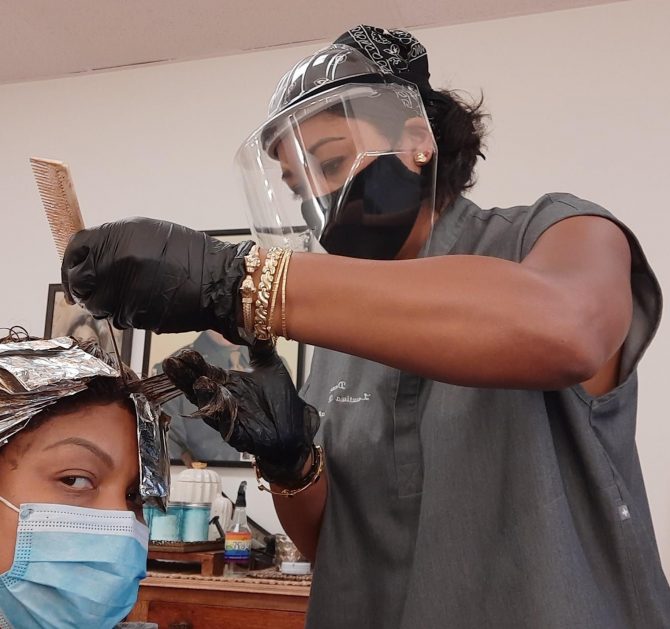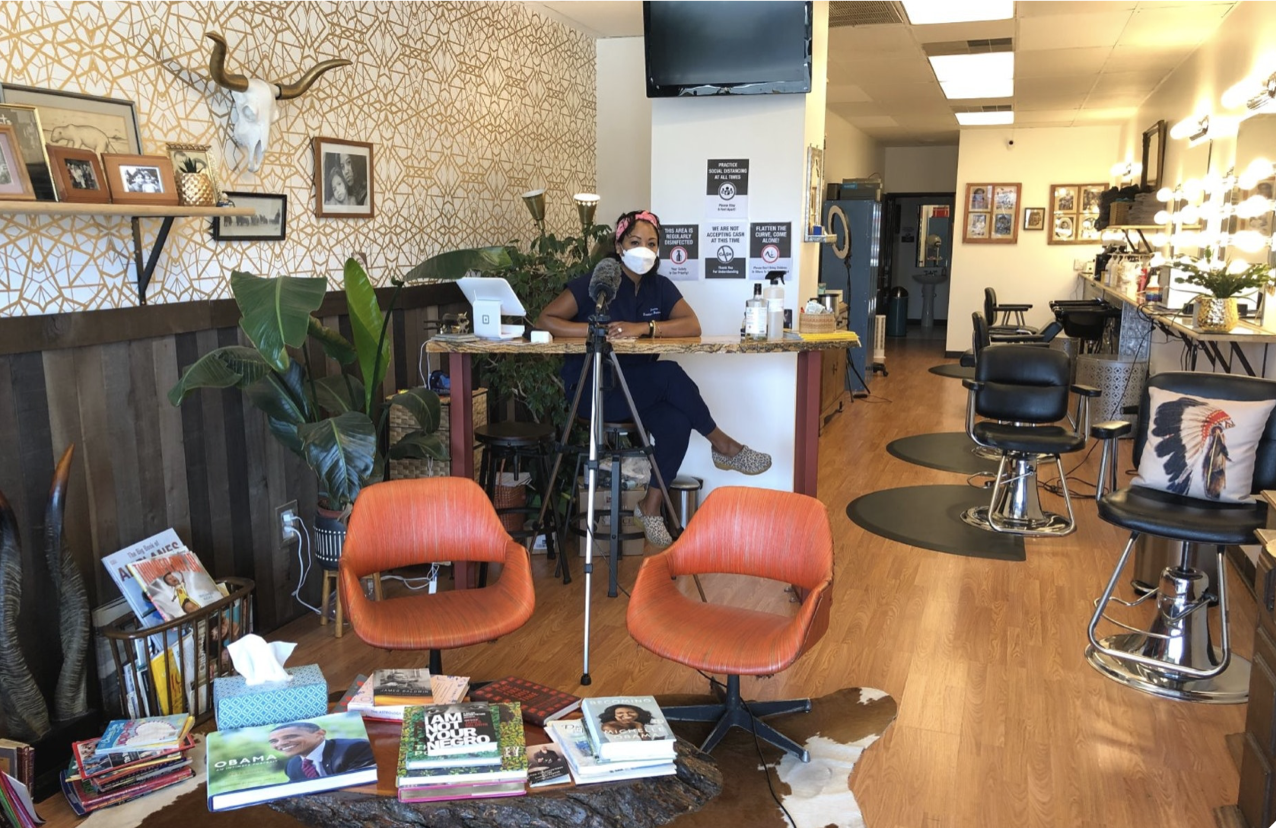In this series of interviews, we explore stories from immigrant/BIPOC*/women business owners who have adapted during the pandemic. The purpose is to learn and connect through shared experience. In this interview, Melissa Mather (Lead Teen Services Librarian at the Children and Family Justice Center) spoke with Deanna, Stylist and Owner of a "barbersalon."
*BIPOC means "Black, Indigenous, and People of Color."
Meet Deanna, Stylist and Barbersalon Owner
Deanna has been a stylist for quite some time and decided two years ago that she wanted to open her own business. Her husband suggested that they call the shop a “barbersalon” to indicate that men and women were welcome. In addition, instead of using her name, Deanna wanted the name of the business to reflect an openness to everyone.
She remembered a professor in college who taught Nez Perce language at Lewis-Clark State College, along with her grandfather, who “greeted the class with ‘T’ac meywi Lawtiwa’, meaning “Good morning, Friend.” Lawtiwa means "friend," but for Deanna, it signifies family and community. Deanna’s family said that the name doesn’t roll off the tongue in the English language, but she didn’t want a Western business name or Western Native name, as her husband suggested, because she is not a coastal Native American, but Nez Perce. “I wanted it to reflect my Native and African American heritages from both sides of my family.”
“I used to be more careful engaging in conversations about politics. Once George Floyd was murdered, I decided I was finished being quiet.”
Deanna wanted the interior of her business to allow BIPOC customers to feel like it was theirs, too. She was fortunate to obtain family photographs that are framed in the window frames from her family’s sharecropper cabin, as her family are descendants of slaves. These are hung in the back of her shop.
“I feel it is important for people who are othered to feel comfortable and that LGBTQIA clients feel that this is a safe place.” Deanna was very intentional about this, as inclusion is the core of who she is. “I learned this from working at Rudy’s Barbershop, where doing business with openness and inclusion in mind can be hand-in-hand. While it might make for uncomfortable conversations about race and politics, there needs to be change.”
 Then COVID-19 hit.
Then COVID-19 hit.
Deanna ended up closing four days after the schools began to shut down. Her husband was getting nervous about exposure. At the same time, she also became her son’s teacher. “During the closure, she felt pressure from certain clients, “who assumed and asked if I was secretly doing hair...and continuing to work with clients at a secret location.” She let people know that she wasn’t willing to risk losing her license and her business.
It was a challenging time. “Financially, the only way I made the first month’s rent was through gift cards that clients bought through Square.” Four weeks before she could open, it was getting grim, and she thought the longest she would be closed was three weeks. It turned into three months.
“I watched all of Governor Inslee’s press conferences, hoping he would allow hair salons to open. I also constantly read cosmetologist, barber and stylist pages for information about the Paycheck Protection Program (PPP), unemployment and Economic Injury Disaster Loans (EIDL), grants and loans, making sure I didn’t miss anything.” Deanna and her co-worker decided to wait until further phases opened and has not been back to work yet.
A turning point.
Deanna began following the PNW Stylist Facebook pages. She posted a lot on Facebook and Instagram about what was happening in her industry in regard to rules and regulations, as well as when hairstylists were allowed to return to work. “I wanted to be transparent since everyone seemed to be online and would get information about opening quickly.” Her transparency about how she was following procedures and purchasing personal protective equipment (PPE) helped her clients feel safe and comfortable coming in.
The road ahead.
Deanna is very busy, but business is different. Now that the barbersalon is open, she works several days without a break. She can’t double book, which limits her earning power. In addition, she has to add 15 minutes to each appointment in order to have time to sanitize and change her scrubs between each client. When she shampoos a client, they wear a mask and cover their faces with a towel. She can’t do any waxing or beard trims because a mask has to cover the nose and mouth.
Deanna is finding support locally and helping to get the word out. “I joined Discover Burien when I opened, and they have been helpful in letting businesses know about the variety of support available.” The city is also working with Ventures to provide a class for Latinx entrepreneurs.
Deanna’s Business Tip: List your business on the Intentionalist website to help get new clients.
Support your local small business community! For more financial and small business resources, visit Invest in Yourself.
The Welcoming Center for immigrants, refugees and new arrivals connects you to the people and resources in the area you live.


